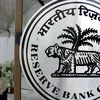Google Pay not a payment system operator: RBI to HC
The RBI's submissions came in response to a PIL by financial economist Abhijit Mishra who has alleged that Google's mobile payment app, GPay was facilitating financial transactions without the requisite authorisation from RBI.
The Reserve Bank of India (RBI) has told the Delhi High Court that Google Pay is a third party app provider (TPAP) and does not operate any payment systems.
Therefore, its operations are not in violation of the Payment and Settlement System Act of 2007, RBI has told a bench of Chief Justice D N Patel and Justice Prateek Jalan.
RBI has also told the court that since Google Pay does not operate any payment system, it does not find a place in the list of authorised payment system operators published by the National Payments Corporation of India (NPCI).

The RBI's submissions came in response to a PIL by financial economist Abhijit Mishra who has alleged that Google's mobile payment app, Google Pay, or GPay in short, was facilitating financial transactions without the requisite authorisation from RBI.
Mishra has claimed that GPay was acting as a payments system provider in violation of the Payments and Settlements Act as it has no valid authorisation from the central bank of the country to carry out such functions.
He has also contended that GPay does not figure in NPCI's list of authorised 'payment systems operators' released on March 20, 2019.
The bench said the matter requires detailed hearing as it affects other third party apps and listed it on July 22.
In another development this month, The Reserve Bank of India (RBI) directed payment systems operators to undertake targeted multi-lingual campaigns by way of SMSs and advertisements to educate their users on safe and secure use of digital payments amid incidence of frauds continuing to bedevil people.
Safety and security of digital transactions are of paramount importance, it said in a circular to payment system operators and participants.
The RBI has been taking measures to improve awareness through its e-BAAT programmes and organising campaigns on the safe use of digital payment modes to avoid sharing critical personal information like PIN, OTP, and passwords.
(Disclaimer: Additional background information has been added to this PTI copy for context)
Edited by Kanishk Singh








